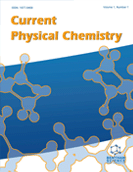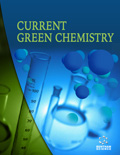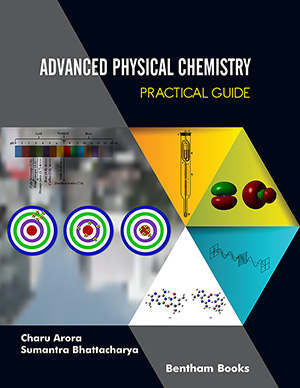Abstract
Background: Today, acid rain problem is one of the serious global problems to the environment in which pH of the rain water decreases, causing harmful effect to nature, buildings, monuments, vegetation and human being as well. Therefore, the objective of the paper to find out some organic inhibitors present in the atmosphere that inhibited the acid rain.
Objective: In this paper, we studied the chemistry of Cu (II)-methanoic acid-S(IV)-O2 in acetate buffered medium by earlier reported methods in literature. Gravimetric analysis was carried out to find the end product and confirmed that it was sulphate with 98 % recovery.
Methods: Experiments were carried out at 303 ≤ T/K ≤ 313, 4.0 ≤ pH ≤ 5.35, 1.0×10−3 mol/dm3 ≤ S(IV) ≤ 10.0×10−3 mol/dm3, 5×10−6 mol/dm3 ≤ [Cu(II)] ≤ 2.5×10−5 mol/dm3, 6×10−6 mol/dm3≤[methanoic acid]≤7×10-4 mol/dm3. The value of apparent activation energy and inhibition parameter B was calculated in the presence of methanoic acid found as 29.07 kJ mol-1and 3.18 x 103 mol dm-3, respectively. The thermodynamic parameters were found as frequency factor (1.59 x 10-6s-1), entropy (-358.92 J K-1 mol-1), enthalpy (20.97 k J mol-1), and Gibbs free energy (172.83k J mol-1), respectively.
Results: We observed that methanoic acid acts as an inhibitor in copper catalyzed autoxidation of SO2 in acidic medium. Therefore, on the basis of the observed results a free radical mechanism has been identified. The results are useful for modeling rain water acidity and therefore a great use of meteorology and atmospheric chemistry. This study is important in understanding the mechanism of the oxidation of S(IV) by O2.
Conclusion: This study suggests that since organic inhibitors are found in the atmosphere, their concentrations and their influence on the oxidation of aqueous SO2 should be taken into account. The intervention of methanoic acid in the autoxidation of aqueous SO2 plays a role in deciding the fate of both methanoic acid and SO2. The influence of inhibitors may be used to calculate the lifetime of SO2, Methanoic acid has high values of kinh and, therefore, it would be degraded by sulfate radical anions in atmospheric waters.
Keywords: Autoxidation, copper, inhibition, kinetics, methanoic acid, SO2.
Graphical Abstract
[http://dx.doi.org/10.1016/j.atmosenv.2012.11.027]
[http://dx.doi.org/10.1016/S1352-2310(01)00573-8]
[http://dx.doi.org/10.1016/S1352-2310(00)00117-5]
[http://dx.doi.org/10.1002/kin.20550]
[http://dx.doi.org/10.1134/S0036024406030113]
[http://dx.doi.org/10.1016/0960-1686(92)90178-N]
[http://dx.doi.org/10.1023/A:1007003502735]
[http://dx.doi.org/10.1023/A:1007067115356]
[http://dx.doi.org/10.1021/es00031a013]
[http://dx.doi.org/10.1246/bcsj.64.1955]
[http://dx.doi.org/10.1007/BF02910846]
[http://dx.doi.org/10.1007/s11243-008-9115-6]
[http://dx.doi.org/10.1016/S1352-2310(98)00241-6]
[http://dx.doi.org/10.1016/j.atmosenv.2007.07.051]
[http://dx.doi.org/10.1023/A:1005918912994]
[http://dx.doi.org/10.1021/es404872w] [PMID: 24588305]
[http://dx.doi.org/10.1016/j.apcatb.2016.10.076]
[http://dx.doi.org/10.1016/j.apcata.2015.10.008]
[http://dx.doi.org/10.1016/j.apcata.2015.11.028]
[PMID: 22324143]
[http://dx.doi.org/10.1007/s10874-008-9105-2]
[http://dx.doi.org/10.1016/1352-2310(94)90405-7]
[http://dx.doi.org/10.1023/A:1006462025384]
[http://dx.doi.org/10.1016/j.jhazmat.2013.04.018] [PMID: 23692683]
[http://dx.doi.org/10.1007/s11356-013-2253-1]
[http://dx.doi.org/10.1007/s11356-016-6844-5] [PMID: 27230141]
[http://dx.doi.org/10.1002/kin.21069]
[http://dx.doi.org/10.1021/jp0208790]
[http://dx.doi.org/10.1023/A:1022164702310]
[http://dx.doi.org/10.1021/es00046a019]
[http://dx.doi.org/10.1016/S1352-2310(03)00503-X]
[http://dx.doi.org/10.1016/j.atmosenv.2004.11.024]
[http://dx.doi.org/10.1039/c3fd00042g] [PMID: 24601005]
[http://dx.doi.org/10.5772/32390]
[http://dx.doi.org/10.15406/japlr.2017.04.00091]
[http://dx.doi.org/10.2174/1877946807666170607143955]
[http://dx.doi.org/10.1007/s11243-007-9045-8]
[http://dx.doi.org/10.5958/0974-4150.2017.00040.2]
[http://dx.doi.org/10.5958/0974-4150.2018.00110.4]













